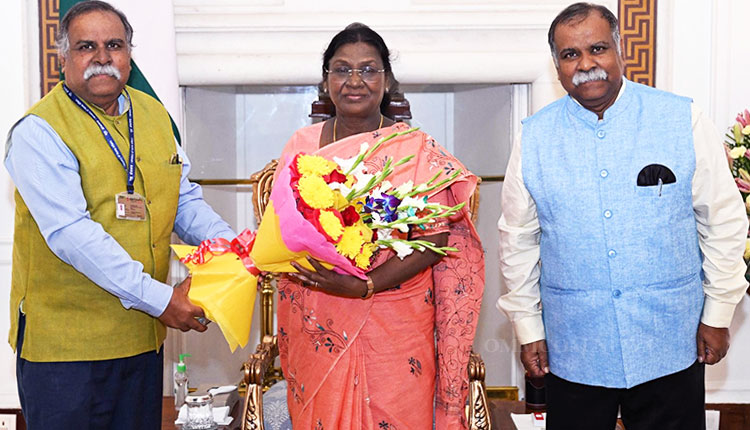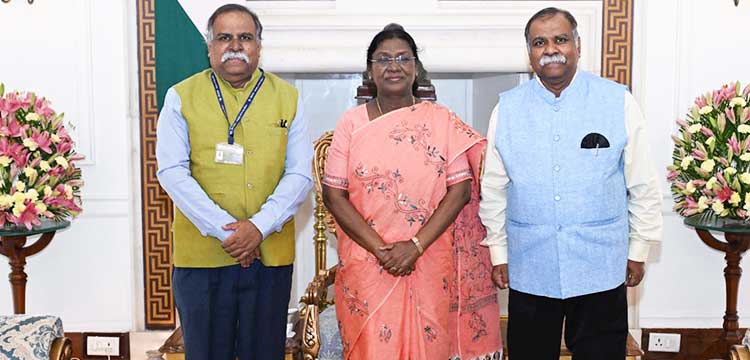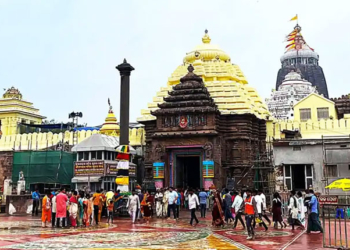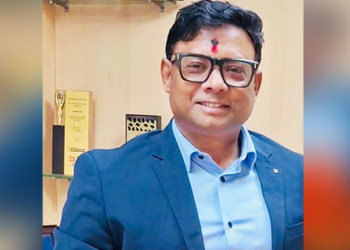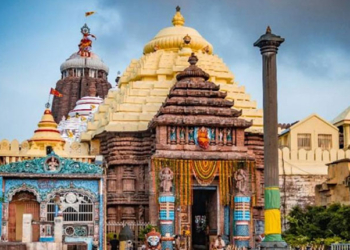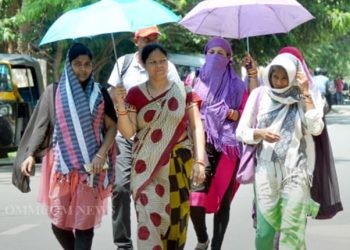New Delhi/Bhubaneswar: The Chairman of the National Monuments Authority, Government of India, Prof. Kishor Basa, and his twin brother, Er. Ashok Basa, Chair of the Strategic Planning Committee, World Federation of Engineering Organizations (WFEO), former Executive Vice President (WFEO), and former President of the Institution of Engineers (India), called on the President of India, Droupadi Murmu, at Rashtrapati Bhavan today in New Delhi.
During the meeting, Prof. Kishor Basa briefed the President of India on issues related to the cultural and tribal development of Odisha. He requested the establishment of a National Institute of Tribal Development (NITD) at Rairangpur in the district of Mayurbhanj under the Ministry of Tribal Affairs, citing the strategic location of Rairangpur and the concentration of the tribal population in Odisha, as well as in the neighboring states of Jharkhand and West Bengal. He suggested that the institute could be modeled on the National Institute of Rural Development in Hyderabad.
Prof. Basa also sought the President’s attention for the cultural preservation of the Jhumar song and dance form, recognised as an important Intangible Cultural Heritage. Jhumar symbolises the cultural integration of tribes and castes across a major geographical region extending from Odisha, Chhattisgarh, and Jharkhand to West Bengal and Assam. Prof. Basa emphasised the need for formal recognition of this art form by establishing a National Centre for Jhumar at Baripada, Mayurbhanj, under the Ministry of Culture, Government of India. He also requested that the Archaeological Museum at Khiching be brought under the Archaeological Survey of India, Ministry of Culture, for better preservation, display, and promotion. Currently, the museum functions under the Government of Odisha.
During the meeting, Er. Ashok Basa highlighted the alarming issue of global water scarcity. He noted that the United Nations has already launched the ‘Water Action Decade 2018–2028’ and emphasised the role of water in Sustainable Development Goals (SDGs) 6, 11, 13, and 14. He stressed that the primary purpose of the UN initiative is to raise public awareness about water scarcity and to promote sustainable and integrated water resource management.
Er. Basa drew the President’s attention to India’s severe water crisis, warning that it could result in a 6% loss of India’s GDP by 2050. He noted that by 2030, India’s water demand is projected to be twice the available supply, leading to acute water scarcity. Under these circumstances, he highlighted the need for effective governance for managing the country’s water resources. He requested the initiation of a pilot project on Water Resources Management in Odisha, which would involve creating a State Water Management Authority responsible for restructuring water policy. Upon successful implementation in Odisha, the model could be replicated in other states. A detailed note on this matter was submitted to the President of India by Er. Basa.
Prof. Kishor Basa and Er. Ashok Basa expressed their sincere gratitude to the President of India for providing them the opportunity to share their ideas in person, in the greater interest of the nation.




